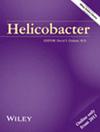Gastric epithelial barrier disruption constitutes a crucial step in gastric cancer (GC). We investigated these disruptions during the Correa's cascade timeline to correlate epithelial barrier dysfunction.
This study was conducted as a single-center, non-randomized clinical trial in China from May 2019 to October 2022. Patients with chronic atrophic gastritis (CAG), gastric intestinal metaplasia (GIM), low-grade intraepithelial neoplasia (LGIN), high-grade intraepithelial neoplasia (HGIN), and intramucosal carcinoma underwent probe-based confocal laser endomicroscopy (pCLE). The pCLE scoring system was used to assess gastric epithelial barrier disruption semi-quantitatively.
We enrolled 95 patients who underwent a pCLE examination. The control group consisted of 15 individuals, and the experimental group included 17 patients with CAG, 27 patients with GIM, 20 patients with LGIN, and 16 patients with early gastric cancer (EGC). Apart from CAG, which showed no significant difference compared to the control group, a significantly higher incidence of gastric epithelial barrier damage was found in the GIM, LGIN, and EGC groups compared to the control group (Kruskal–Wallis H test = 69.295, p < 0.001). There is no difference in LGIN patients between GIM and LGIN areas, and there is no difference between the two groups compared with the EGC group. The intestinal metaplasia area in LGIN patients causes more severe gastric epithelial damage compared to that in non-LGIN patients. Additionally, compared to control group, a significant difference (p < 0.001) was noted between individuals with Helicobacter pylori-positive atrophic gastritis and those with IM, whereas no significant difference (p > 0.05) was observed among individuals with H. pylori-negative atrophic gastritis.
The gastric epithelial barrier remains dysfunctional from the initiation of H. pylori infection to GC progression. Beyond the “point of no return,” subsequent carcinogenesis processes may be attributed to other mechanisms.


